Science Experiments Teaching Resources
Unlock science experiments for kids and a love of experimentation in your classroom with ready-made experiments created for your elementary and middle school students by science teachers just like you!
This extensive collection of curriculum-aligned experiments was created to save you time on your lesson plans and help you help your students learn to discover brand-new knowledge about the workings of the world around us!
New to teaching students to conduct experiments or just looking for some handy tips? Read on for a primer from our teacher team, including a way to explain what an experiment is, plus some handy terminology!
What Is a Science Experiment? A Kid-Friendly Definition
If it's your first time introducing experiments, a definition may come in handy. Here's how we explain the meaning of this concept to students:
A science experiment is a way to test a hypothesis or investigate a question in a systematic and controlled manner. Experiments allow us to ask questions, form hypotheses and discover new information.
What Is a Fair Test?
In order to set the stage for successful experimentation, students need to understand how to set up fair tests — also known as controlled experiments.
A fair test is an experiment in which all variables — except for the independent variable — are kept constant and controlled. The goal of conducting a fair test is to ensure that any observed changes or outcomes can be confidently attributed to the independent variable being tested.
Here's what students should know about fair tests:
- Controlling variables means keeping them the same or at the same level across all groups or conditions in the experiment.
- Without controlling variables in a fair test, it becomes difficult to determine the true cause-and-effect relationship between the independent variable and the observed changes.
- A fair test should be an experiment that can be replicated. That means that other scientists should be able to repeat the experiment and achieve similar results by following the same procedures and controlling the same variables.
Creating a rain cloud in a jar is a fun science experiment for kids that allows students to see the actions of water vapor and condensation in action in the classroom.
What Is an Independent Variable in a Science Experiment?
You know that your students will need an independent variable to ensure the success of their science experiments, but do you need a handy definition to explain what these are? We've got you covered!
Here's how to explain these core components of any good experiment to your young scientists:
An independent variable is the factor in an experiment that a scientist deliberately changes or manipulates to test their hypothesis. Changing the independent variable can help you determine if it has an impact on the outcome or on the dependent variable — which should not be changed or manipulated.
As noted earlier, in order to have a true fair test, students need to control or keep constant all other variables except for the independent variable.
Independent Variable Example
For example, let's say a student wanted to run an experiment to determine if plants grow better in conditions where classical music is played than in conditions where there is no sound or rock music is played.
In this type of experiment, the sound introduced to the plant would be the independent variable. It would change, while other variables — such as the amount of sunlight and water that the plant received — must remain the same.
What Is a Control in an Experiment?
The independent variable will change in a student's experiment, but the control will do the exact opposite!
The control in a science experiment refers to any variables or conditions that are kept constant or unchanged throughout the experiment. It's just as important to the fair test that these stay constant as it is that the independent variable is changed.
Control Example
For example, in the plant and sound experiment described above, the amount of water and sunlight would be controls as neither would change.
- Plus Plan
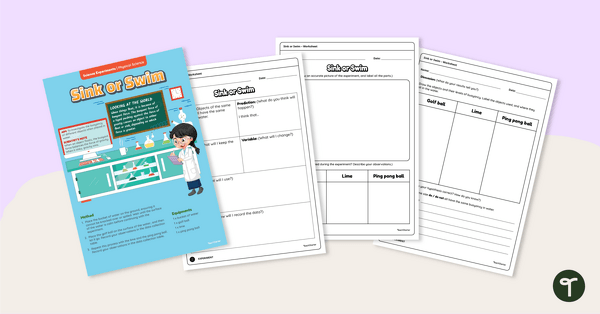
Buoyancy Experiment – Sink or Swim
Use this practical buoyancy experiment when teaching your students about why some objects float in water while others sink.
- Plus Plan
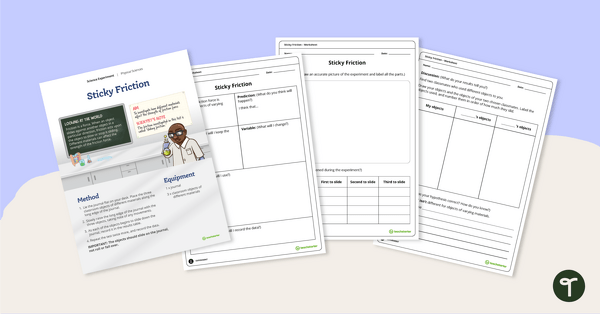
Friction Experiment - Sticky Friction
Use this engaging friction experiment when teaching your students about sliding friction and the effect it has on the movement of objects.
- Plus Plan
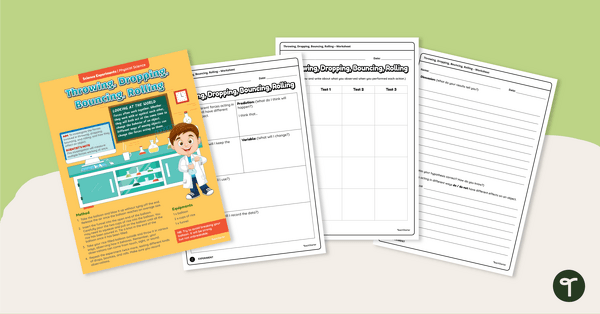
Force and Motion Experiment – Throwing, Dropping, Bouncing, Rolling
Use this hands-on force and motion experiment when teaching your students about how forces influence the movement of objects.
- Plus Plan
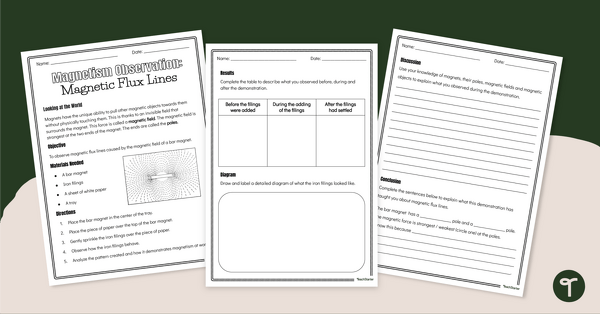
Magnet Experiment – Magnetic Flux Lines
Use this engaging magnet experiment when teaching your students about magnetic fields and their effect on magnetic objects.
- Plus Plan
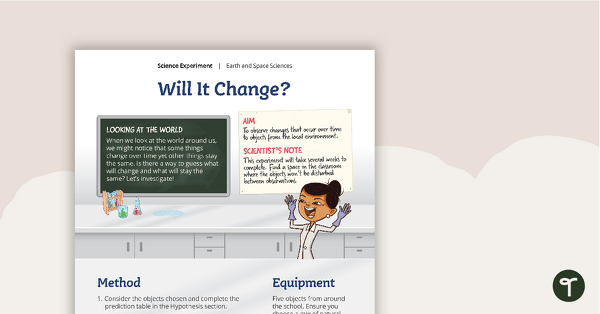
Science Experiment - Will It Change?
A science investigation in which the students observe changes that occur to various objects over time.
- Plus Plan
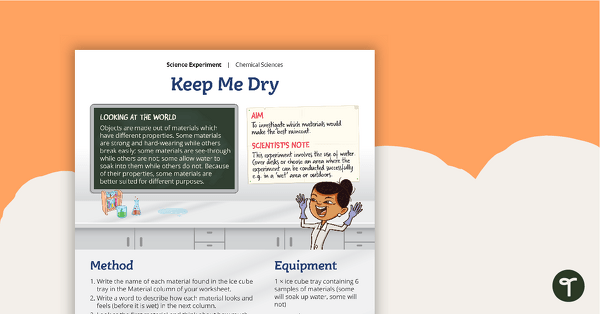
Science Experiment - Keep Me Dry
A science experiment that explores the absorptive properties of materials.
- Plus Plan
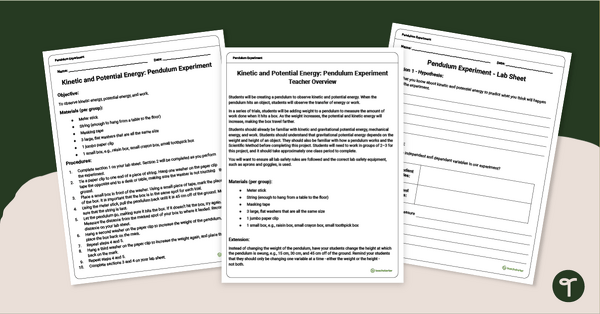
Kinetic and Potential Energy: Pendulum Experiment
A science experiment to use with your students when learning about kinetic and potential energy and work.
- Plus Plan
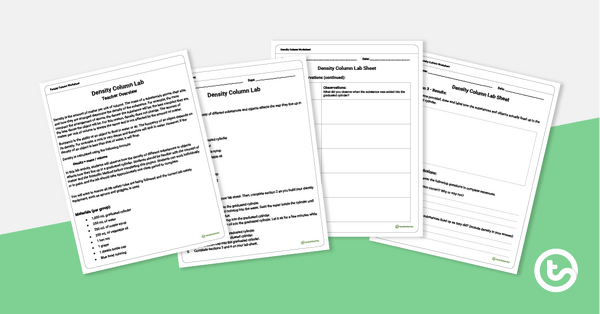
Density Column Science Experiment
A science experiment to use with your students when learning about density.
- Plus Plan
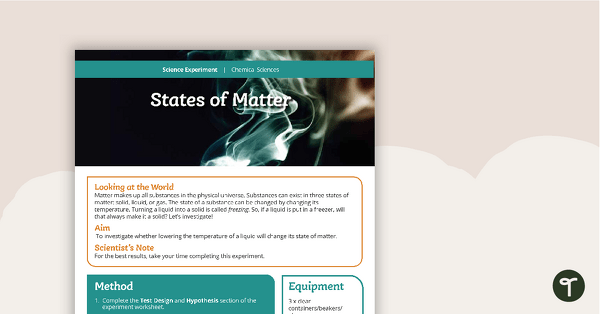
Science Experiment - States of Matter
A science experiment that investigates how a substance's state of matter can be changed.
- Plus Plan
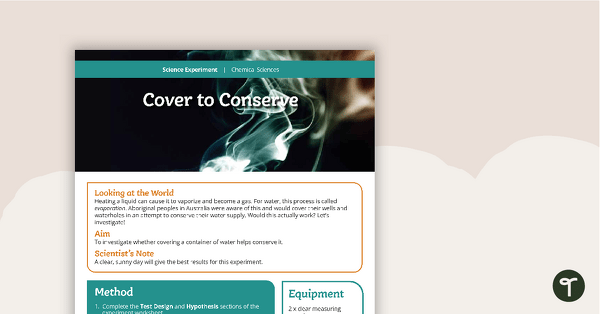
Science Experiment - Cover to Conserve
A science experiment that investigates if evaporation can be reduced by covering a body of water.
- Plus Plan
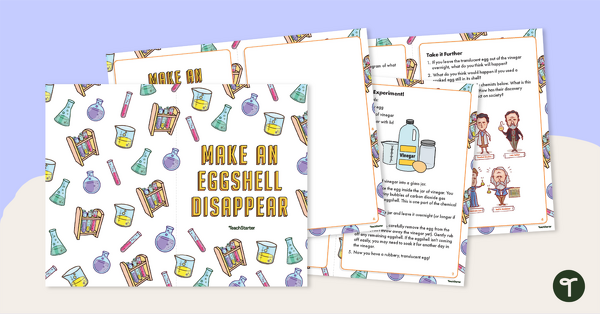
Make an Eggshell Disappear - Science Experiment Booklet
Investigate chemical reactions with this hands-on experiment booklet.
- Plus Plan
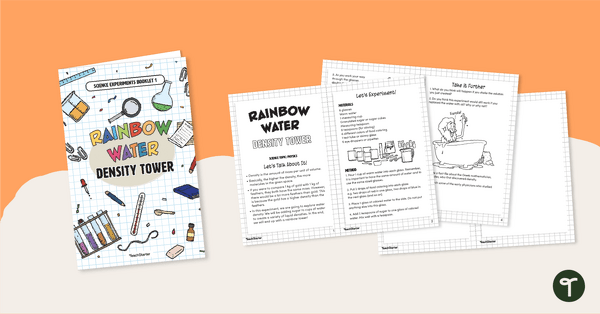
Rainbow Water Density Tower - Science Experiment Booklet
A fun science experiment about density and physics.
- Plus Plan
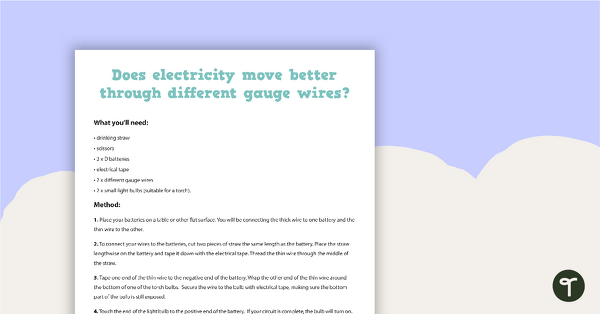
Electricity Experiment
An experiment to investigate if electricity moves better through different gage wires.
- Plus Plan
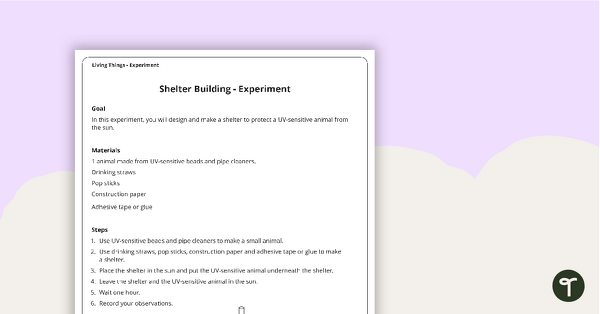
Shelter Building - Experiment
A hands-on experiment to use when investigating how shelters protect living things.
- Plus Plan
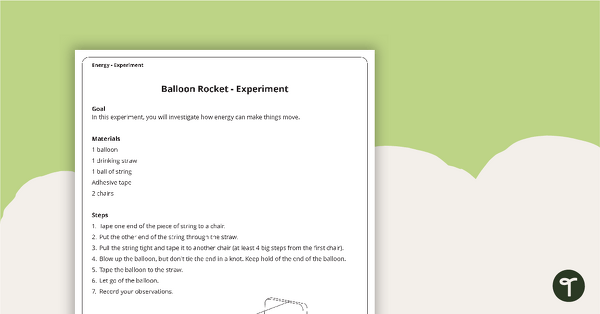
Balloon Rocket - Experiment
A hands-on experiment to use when investigating how energy can make things move.
- Plus Plan
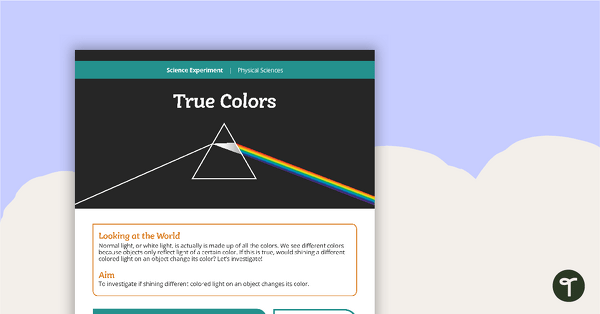
Science Experiment - True Colors
A science experiment that explores the perception of color.
- Plus Plan
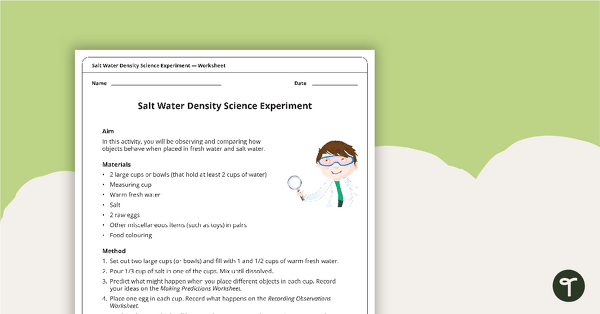
Salt Water Density Experiment
A hands-on science experiment about salt water density.
- Plus Plan
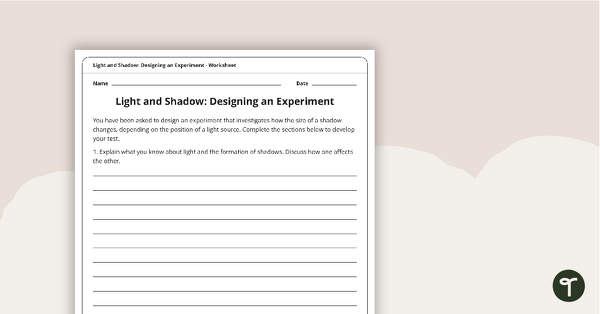
Light and Shadow - Design an Experiment Worksheet
A worksheet that explores light and shadow and the principles of a fair test.
- Plus Plan

Now I Understand PowerPoint - Building a Solid Conclusion for an Experiment
An educational teaching presentation introducing the students to the R.E.R.U.N. method for writing a scientific conclusion.
- Free Plan
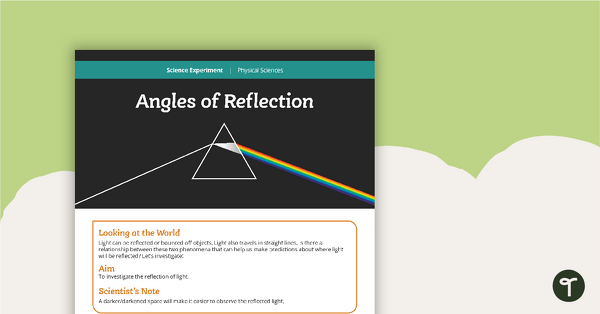
Science Experiment - Angles of Reflection
A science experiment that explores reflected light.
- Plus Plan
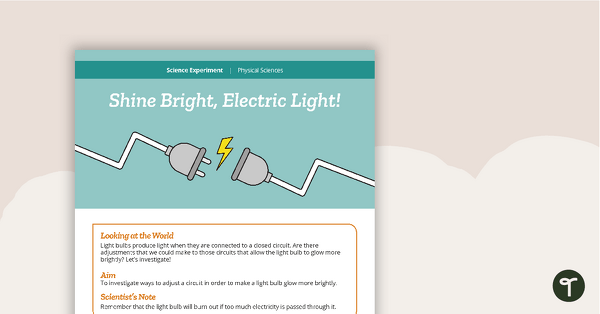
Science Experiment - Shine Bright, Electric Light!
A science experiment that investigates how changes to electrical circuits affects their components.
- Plus Plan
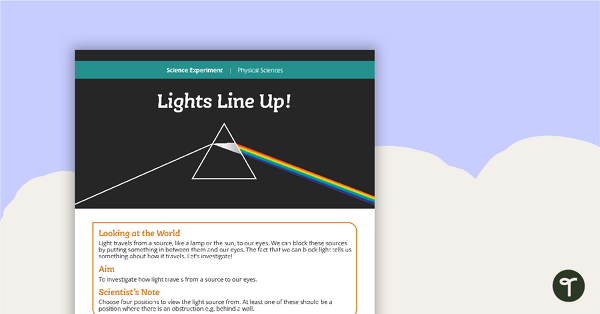
Science Experiment - Lights Line Up!
A science experiment which explores light.
- Plus Plan
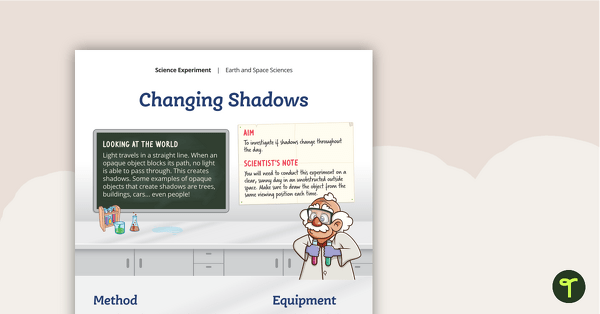
Changing Shadows – Science Experiment
A science experiment which explores how shadows change throughout the day.
- Plus Plan
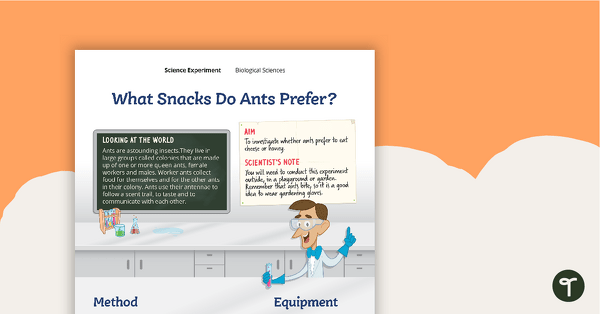
Science Experiment - What Snacks Do Ants Prefer?
A science experiment which explores the food preferences of ants.
- Plus Plan
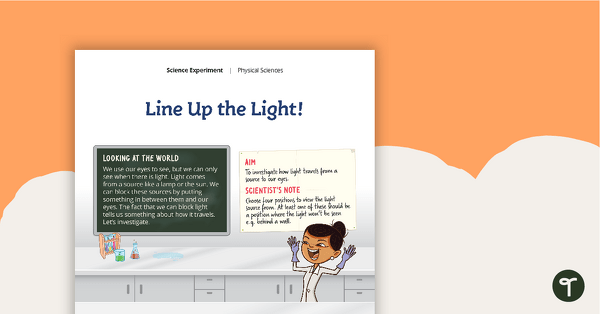
Science Experiment - Line Up the Light!
A science experiment which explores how light travels.
- Plus Plan
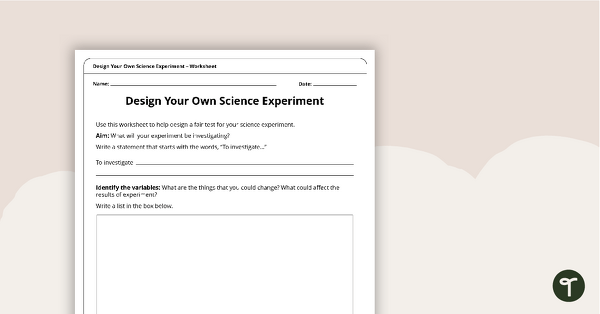
Design Your Own Experiment Worksheet
A set of worksheets to develop students' ability to design fair, scientific experiments.
- Plus Plan
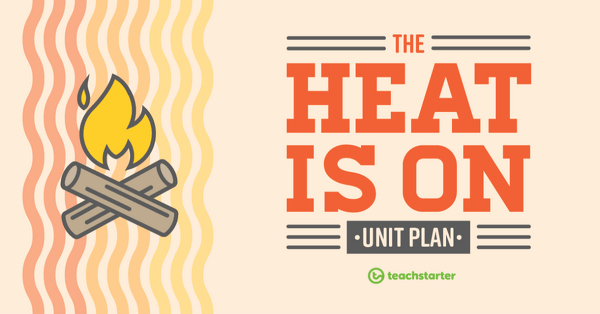
Thermal Insulators - Keeping Out the Heat
A 60 minute lesson in which students will investigate which materials are the best thermal insulators.
- Plus Plan
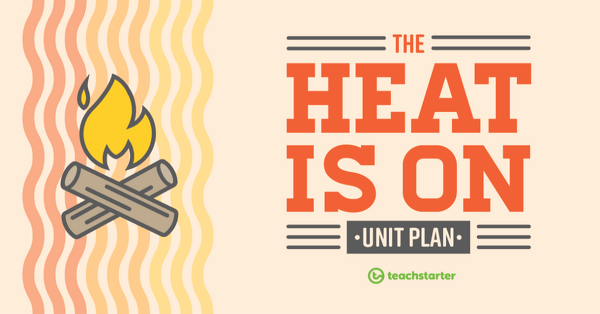
Thermal Conductors - Feel the Heat
A 60 minute lesson in which students will investigate which materials are the best thermal conductors.
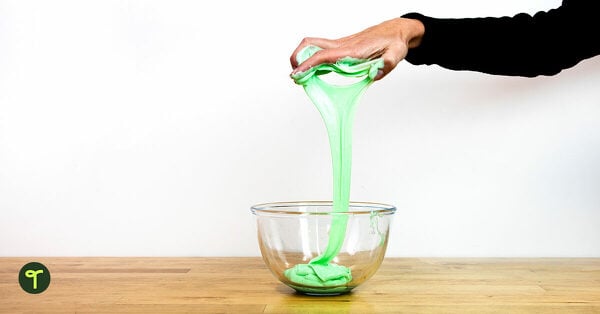
How to Make Slime for Kids (Easiest Recipe Ever, Tested By Teachers!)
Are you looking for an easy slime recipe for kids to use in your classroom? This teacher-tested guide is all you need!
